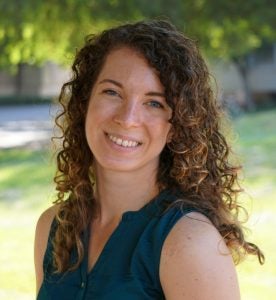
Elizabeth Rose Lotsof
Education:
B.A. Chemistry: Biochemistry Concentration, Cum Laude
Minors in Educational studies and Anthropology, Washington University in St. Louis
From: Chicago, Illinois
Joined the David Lab: January 2017
Outside of lab: I enjoy kickboxing, skiing, music concerts, dancing and baking.
Research in David Lab:
The NEIL family of DNA glycosylases are critical enzymes to maintaining the integrity of the genome. They initiate the base excision repair (BER) pathway by cleaving the N-glycosidic bond between the oxidatively damaged base and the sugar. NEIL1 and NEIL3 have a unique ability to excise a wide variety of substrates and remove lesions from alternative DNA contexts. Because of these abilities, I am currently evaluating the ability of NEIL1 and NEIL3 to excise oxidative base damage from G-quadruplex structures. G-quadruplexes DNA structures that occur in sequences that contain three or four adjacent guanines, which can Hoogsteen hydrogen-bond together to from a G-quartet. These G-quartets will stack together with a central K+ or Na+ ion to stabilize the structure in a variety of conformations. What makes the G-quadruples so notable is their location in the promoter sequences of many oncogenes and BER glycosylases, NEIL1 and NEIL3, and they have been implicated in down- or up-regulating gene transcription. Additionally, due to their high G content, G-quadruplexes are prime spots for oxidative damage necessitating repair by the BER pathway. NEIL’s ability to cleave from such structures suggest a dynamic relationship between DNA repair and gene regulation.
Previous Research Experience:
I previously worked as a Research Coordinator for the NorthShore University Health System’s Division of Urogynecology, where I studied the factors that impact patient persistence with urological medication and the relationship between different Urogynecological surgeries and their post-operative results, in addition to managing ongoing clinical trials. In addition to my research work, I am passionate about science communication and accessibility and helping those with rare genetic diseases. I hope to one day have a career with a biotechnology company focused on therapeutics for individuals with rare genetic diseases.
